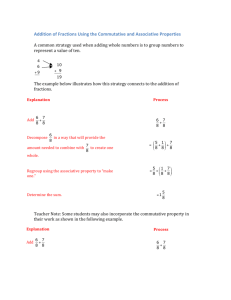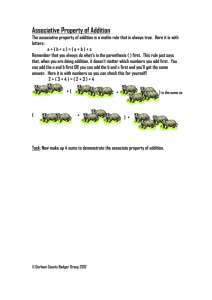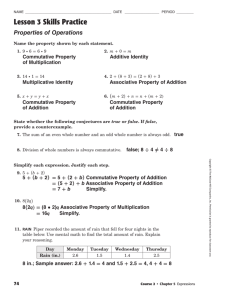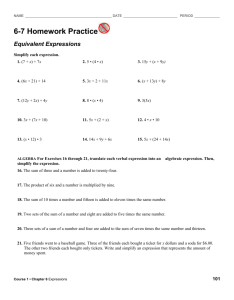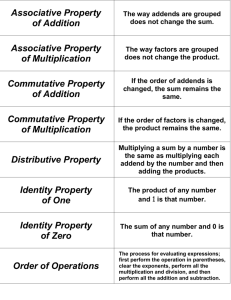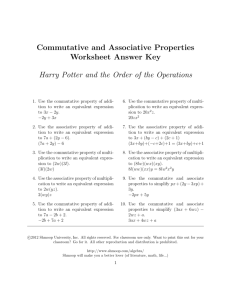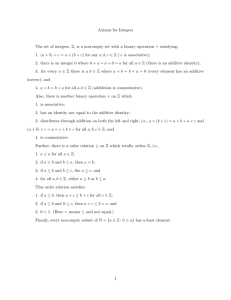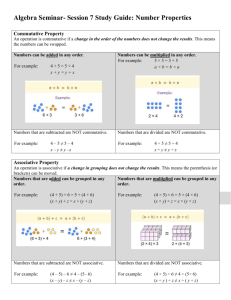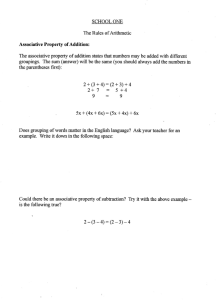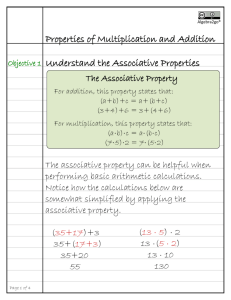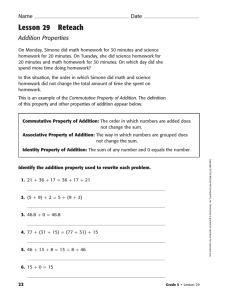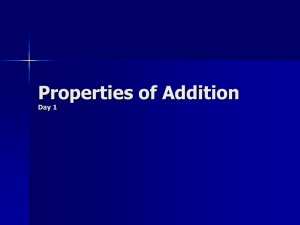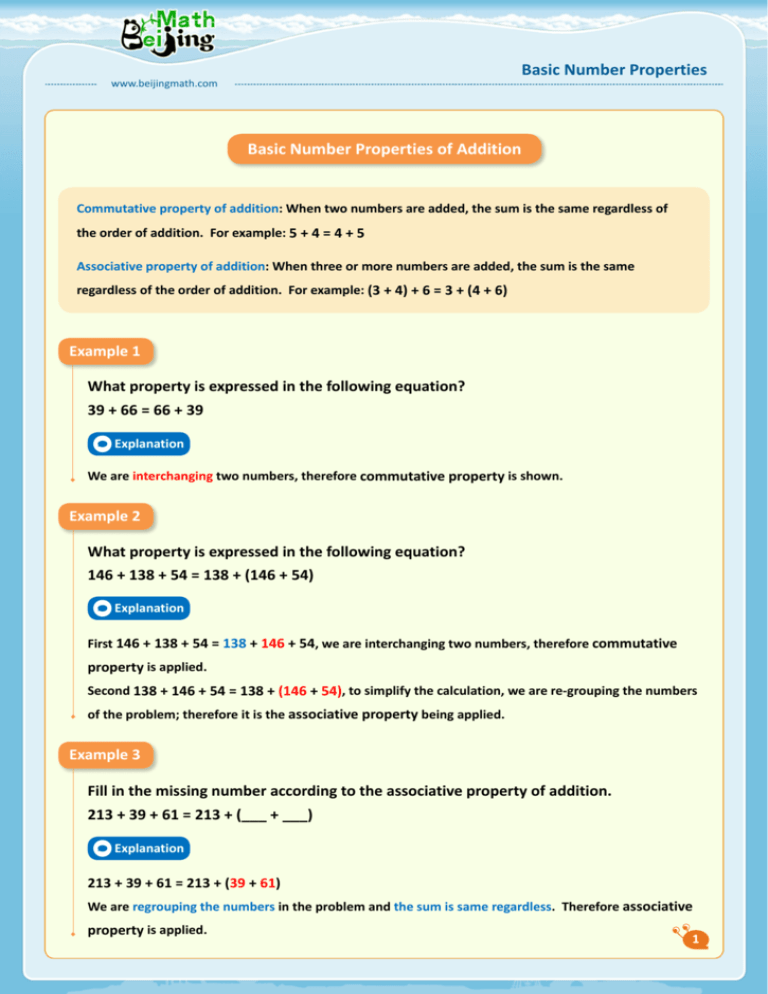
Basic Number Properties
www.beijingmath.com
Basic Number Properties of Addition
Commutative property of addition: When two numbers are added, the sum is the same regardless of
the order of addition. For example: 5 + 4 = 4 + 5
Associative property of addition: When three or more numbers are added, the sum is the same
regardless of the order of addition. For example: (3 + 4) + 6 = 3 + (4 + 6)
Example 1
What property is expressed in the following equation?
39 + 66 = 66 + 39
Explanation
We are interchanging two numbers, therefore commutative property is shown.
Example 2
What property is expressed in the following equation?
146 + 138 + 54 = 138 + (146 + 54)
Explanation
First 146 + 138 + 54 = 138 + 146 + 54, we are interchanging two numbers, therefore commutative
property is applied.
Second 138 + 146 + 54 = 138 + (146 + 54), to simplify the calculation, we are re-grouping the numbers
of the problem; therefore it is the associative property being applied.
Example 3
Fill in the missing number according to the associative property of addition.
213 + 39 + 61 = 213 + (___ + ___)
Explanation
213 + 39 + 61 = 213 + (39 + 61)
We are regrouping the numbers in the problem and the sum is same regardless. Therefore associative
property is applied.
1
Example 4
Use the number properties to simplify the calculation: 147 + 316 + 353
Explanation
Adding 147 and 353 would yield a number that is multiple of 100. Therefore we apply the associative
property to group them together.
147 + 316 + 353
= 147 + 353 + 316
= 500 + 316
= 816
Example 5
Use the number properties to solve: 48 + 158 + 42 + 152
Explanation
When we look at the patterns of the 4 numbers, they add up to equal 200 if we regroup them.
48 + 158 + 42 + 152
200
200
If we can regroup numbers
resulting multiple of
10, 100, etc, that would
simplify the calculation.
48 + 158 + 42 + 152
= 48 + 152 + 42+ 158
Commutative property is applied.
= (48 + 152) + (42 + 158)
Associative property is applied.
= 200 + 200
= 400
Strategies involved with subtraction:
Regrouping subtrahends, the difference remains the same: a – b – c = a – c – b
Subtracting two numbers is equal to subtracting the sum of two: a – b – c = a – (c + b)
Example 6
Solve: 456 – 249 – 156
Explanation
2
456 – 249 – 156
= 456 – 156 – 249
= 300 – 249
= 51
Example 7
Solve: 397 – 154 – 46
Explanation
397 – 154 – 46
= 397 – (154 + 46)
= 397 – 200
= 197
3
PingMax LLC. All rights reserved.

